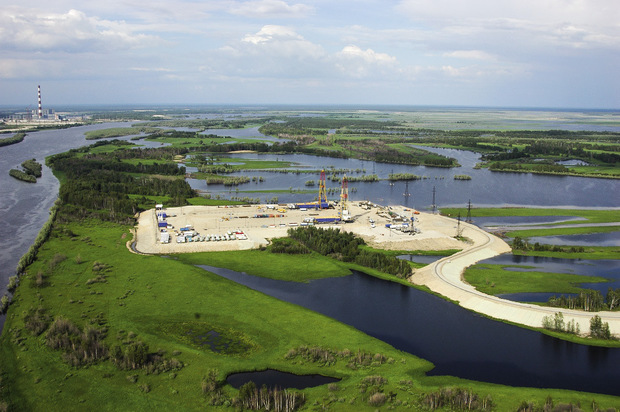New tax regime may be implemented for Russia's mature oilfields
Rosneft's Samotlor field would be the biggest winner
Russian government is thinking of another oil taxation change in order to encourage investment in the country's oldest oilfields as the output there is declining there. Predictably, state-owned Rosneft is likely to be the biggest beneficiary of the new regime.
Russian ministries are considering a possibility of reducing the tax on oil deposits that hold more than 150 million tonnes of resources, but the oil they produce has a water content of more than 90%, states Bloomberg citing an unnamed official and adds that all such fields belong to Rosneft. In case of cutting the extraction tax in half, Russia's top oil producer could get about 90bn rubles ($1,57bn) of additional revenue, considers Alexander Kornilov, an analyst at Aton LLC investment company.
At Samotlor, the largest Russian oilfield, Rosneft could have gained $28 instead of $18 for each extracted barrel last month, estimates Aton. This oil deposit, which started production in 1969, once accounted for a quarter of Soviet output, or 3 million barrels a day. However, in an attempt to increase the output, the field was overfilled by water to boost its recovery. As a result, the production dropped to only 300,000 barrels a day by 1996. After the field passed into the hands of private investors, the output rose again to 600,000 barrels a day in 2009 due to contemporary methods and modern technologies.
Nowadays, the field still contains billions of barrels of oil, but the production is costly because it takes 95 barrels of water to get 5 barrels of crude. In 2015, Samotlor's output declined by 4,7% to about 425,000 barrels a day and plunged by another 4,1% over the first nine months of 2016, says the producer's website.
In December, Russian Prime Minister Dmitry Medvedev said in an interview that tax changes could be used to help out Rosneft. ''If the proposed tax breaks are meant to benefit mainly Samotlor, then it is yet another sign that policies are designed to favour politically-connected companies'', believes Edward Chow, a senior fellow at the Washington-based Center for Strategic and International Studies.
Earlier, Reuters reported that the Ministry of Finance may try out a profit-based tax at Samotlor oilfield and a number of smaller fields from January 2018. At the same time, the ministry proposed to increase the mineral extraction tax to compensate for possible losses. Oil companies objected to this proposal. According to Aleksey Sazanov, director of Tax and Customs Policy Department of the Russian Ministry of Finance, the final decision has yet to be made, and only a part of Samotlor's output may be covered by the new tax.
 Samotlor oil field, Tyumen Oblast, Russia. Photo: rosneft.su
Samotlor oil field, Tyumen Oblast, Russia. Photo: rosneft.su